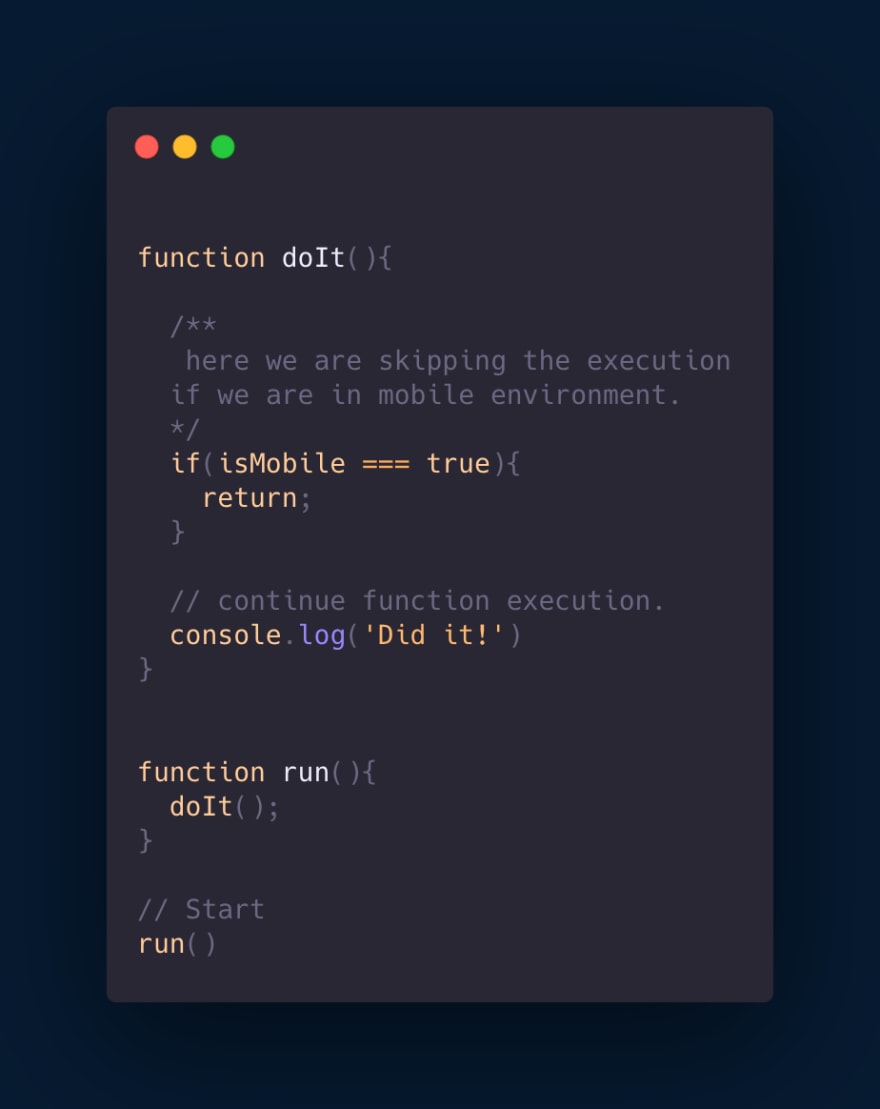Cover photo by Emily Morter on Unsplash
Many times when i'm writing a piece of logic, i face this dilemma while calling a function. If a function needs to be invoked under certain condition, should i put the conditional check inside the function and do early return, OR first do an conditional check and the invoke.
Both have their pros and cons, IMO
Conditional inside the method
- Pros - My execution path remains free of branches and the flow looks linear and simple to read.
- Cons - The intent and actual execution would differ in some cases.

Conditional before calling the function
- Pros - Intent is clear, i want to invoke this function only when a certain condition is met.
- Cons - Branches and readability.




Top comments (2)
I face this dilemma as well as I like to avoid excessive branching if possible. However, If you follow the recommendations from Clean Code amazon.com/Clean-Code-Handbook-Sof... you should limit functions to do one thing ONLY and do it very well. For your example above, my advice would be to have one function for the mobile case, a different one for native, and have the name of the function clearly state that. Otherwise the outcome of doIt() is not clear. It can do something or not.
Interesting!
Your approach would actually eliminate the cons that i mentioned. Thanks for book mention, will check it out.
Based on your comments it can look something like this.